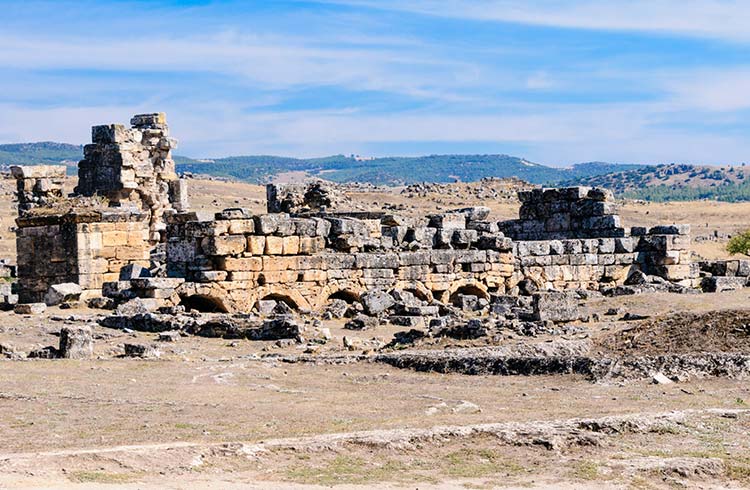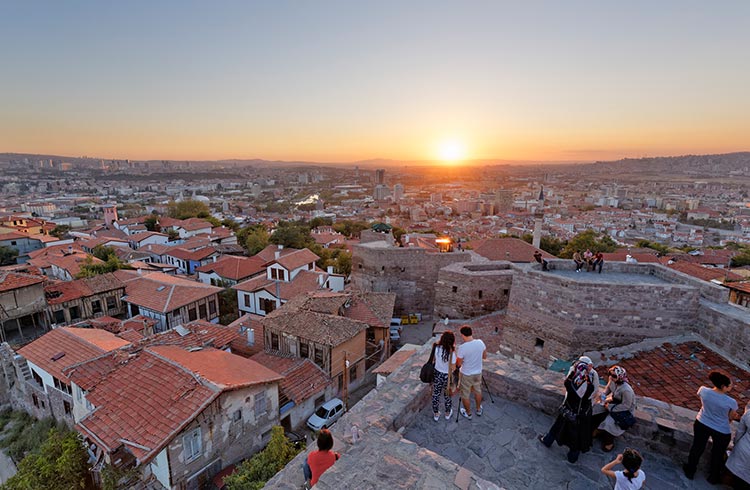Earthquakes in Turkey: Essential Tip for How to Stay Safe
Earthquakes have occurred on all four points of the compass in Turkey, many with catastrophic outcomes. It's best to be prepared with a little knowledge of when and where they might strike.
 Photo © Getty Images/Stephen Barnes
Photo © Getty Images/Stephen Barnes
Turkey has suffered from some of the worst earthquakes in the world. In August 1999, a 7.6 magnitude quake decimated the country, leaving more than 17,000 people dead and close to 45,000 injured. In the 21st century, quakes have hit sporadically in Turkey, killing hundreds.
Earthquakes are very hard to predict, but it's important to be prepared and know how to stay safe when traveling to destinations where earthquakes do happen.
Here's what you need to know about earthquakes in Turkey.
- Where do earthquakes hit in Turkey?
- How often do earthquakes hit in Turkey, and how hard?
- Should I be worried about earthquakes in Turkey?
- What should I do in the event of one?
Where do earthquakes hit in Turkey?
Turkey's main source of earthquake activity comes from a set of fault lines running across the north, from west to east, and concentrating southwest of Istanbul. This was the set that caused the major quake in 1999, and many others.
Click here to see a graph which details peak ground acceleration over the past 50 years in the Mediterranean. We won‘t go too deep into the science, but peak ground acceleration is essentially the measurement of how hard the earth shakes in a given area. All we need to say is that the really dark red bits are Turkey. And we all know that on any map, red usually does not equal anything good.
How often do earthquakes hit in Turkey, and how hard?
In the past 30 years, ten major earthquakes have been recorded in Turkey, claiming the lives of 20,173 people. During this time, they have occurred in clusters.
One hit in 1983, but the next would not wreck havoc until 1992 and 1995. Six quakes hit between 1998 and 2003, and another major quake struck in 2010. On Sunday 23 February 2020 a 5.7 magnitude earthquake struck near the Turkish border with Iran, killing 9 people, injuring more than one hundred people and damaging thousands of buildings.
The high death toll from earthquakes in Turkey is partly due to poor architectural and material quality of some Turkish buildings. The government has acknowledged this and now imposes stricter building codes.
Should I be worried about earthquakes in Turkey?
Like most things when you travel, it's all relative. You should worry more about motor safety than getting stuck in the thick of a Turkish earthquake. But on a simple level, it's the harrowing images of a devastating shake that stay with us on a visceral level – and it's those images that spark fear. The mundane idea of motoring, while it's actually a deadlier aspect of Turkey, just doesn't resonate in the same way.
What should I do if an earthquake strikes in Turkey?
- If you are indoors when you feel a quake hit, stay there. Move quickly to a safe location inside the room – most preferably under a strong desk or table. You want to minimize your exposure to falling objects, so if you cant find a table, side up to an interior wall. You want to be located as close as you can to the structural strong points of the room
- Don't take cover near windows, mirrors, hanging objects or heavy furniture. If you make the dash outside while the quake hits, you could expose yourself to falling debris, so take refuge under the most solid structure you can find
- If you are outdoors, move to the clearest area possible – move completely away from any buildings, trees, power-lines or other structures. If you are lucky enough to be outdoors, and clear of any objects, you're in the safest place possible in this event
- If you are in a car, move slowly to the side of the road and make sure you are clear of any trees or buildings.
Related articles
Simple and flexible travel insurance
You can buy at home or while traveling, and claim online from anywhere in the world. With 150+ adventure activities covered and 24/7 emergency assistance.
Get a quote


No Comments